Wondering what indoor activities you can do to improve your communication skills? Group games are a great way to learn!
From charades to board games, there are plenty of fun and engaging activities that can help you develop better communication skills.
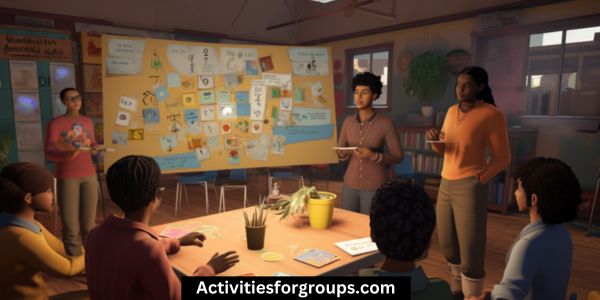
Learn the types of group games, how to prepare, and how to play for maximum benefit.
Benefits of Group Games
Playing group games indoors can bring many benefits to your communication skills over time. Team building and group dynamics are just two of the many ways that games can help to improve the way you communicate. When playing a game with others, you’ll need to interact and cooperate in order to win. This will teach you how to effectively participate in conversations with multiple people.
Group games also foster creativity and problem-solving. As you work together to come up with different strategies for success, you’ll learn how to think outside the box and come up with creative solutions. With practice, you’ll become more confident in your ability to solve difficult problems in team conversations.
Group games also help to strengthen relationships. As you work together to reach a common goal, you’ll learn how to trust each other, develop mutual respect, and understand each other better. These social skills will become invaluable in your conversations with others.
Finally, group games can help to build your self-esteem. As you overcome challenges together, you’ll gain a sense of accomplishment and pride in your own abilities. This will give you the confidence to communicate your ideas and opinions more effectively.
Types of Group Games
With so many different types of indoor group games to choose from, you can easily find one that can help you sharpen your communication skills. From word games to puzzles and more, there are a variety of activities that can be used to enhance team dynamics and engagement strategies.
Here are 3 types of group games that can help improve communication skills:
- Charades: Charades is a classic game that requires players to guess the word or phrase provided by another player. This game encourages communication and collaboration amongst players as they work together to solve the puzzles.
- Tabletop Games: Tabletop games can be great for team building and communication. These games require players to work together in order to solve a problem or reach a goal.
- Role-Playing Games: Role-playing games are also great for encouraging communication. These games require players to step into different roles and interact with other players in order to complete the game. This can help improve communication skills by teaching players how to think on their feet.
No matter which type of game you choose, you can be sure that it will help improve communication skills. With regular practice, you can sharpen your communication skills and become a better team player.
Steps to Prepare

Before you start playing any indoor group games, it’s important to take a few steps to prepare.
First, decide on the game you want to play and make sure everyone is familiar with the rules. You should also consider your group’s size and the space available, as this will determine which type of game is most suitable.
Next, create a team building activity that encourages collaboration and communication. This could include ice-breakers, problem-solving tasks, or other activities that allow players to get to know each other better.
Finally, set a plan for resolving conflicts before they arise. This could involve assigning a mediator to help resolve any disputes or having a set of rules that everyone agrees to follow.
How to Play
Once you’re familiar with the rules and the team building activities, it’s time to start playing the group game! To make the most out of the experience, it’s important to keep the following points in mind:
- Encourage role swapping – allow participants to take on different roles and swap them around throughout the game. This will help them gain new perspectives and improve their communication skills.
- Provide positive reinforcement – in order to foster an environment of trust and build team morale, use positive reinforcement to recognize good performance and encourage participation.
- Focus on communication – the goal of the game is to improve communication skills, so make sure that every participant is given the chance to express their thoughts and ideas.
These tips will help make your group game more effective in boosting communication skills. Interaction and collaboration are key, so make sure to create a fun and engaging atmosphere for everyone!
Benefits of Playing
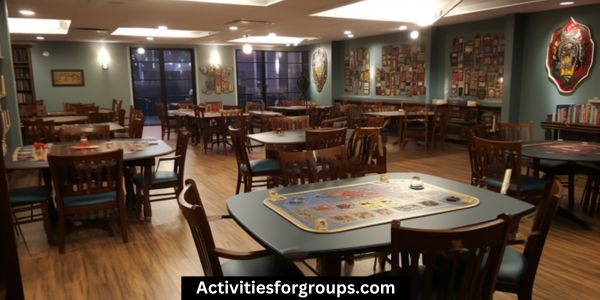
Beyond the enjoyment of playing, group games can provide a number of benefits that help improve communication skills. Through active listening and team building, players can develop and hone their ability to express themselves, listen carefully to others, and work together to complete tasks.
Group games encourage players to actively listen to each other and take part in meaningful conversations. This helps players gain an understanding of different perspectives, develop better empathy and communication techniques, and learn to cooperate better. Additionally, the interactive nature of group games can help foster a sense of community and allow for collaborative problem-solving.
Group games also help with team building, as they require players to work together towards a common goal. This encourages players to listen to each other’s ideas and opinions, as well as develop trust and respect for one another. As players become more aware of their teammates’ communication styles, they can learn to better collaborate with each other.
In addition, group games are designed to be fun and engaging. This can help create a positive atmosphere where players can relax and feel comfortable expressing themselves. Through this relaxed atmosphere, players can take the time to reflect on their interactions and learn how to communicate better in the future.
Frequently Asked Questions [FAQs]
How Long Do Group Games Typically Last?
Group games typically last depending on the team size and time limits set by the group. Generally, shorter games are better suited for smaller teams, while longer ones can accommodate larger teams.
How Many People Are Typically Needed to Play Group Games?
You typically need a small team or group to play group games. Team and group dynamics are important to consider when deciding how many people should be playing.
How Can Group Games Be Adapted for Different Ages and Abilities?
You can adapt group games for different ages and abilities by focusing on team building and problem solving. For example, adjust game difficulty or length, provide extra support, or modify rules.
Are There Any Health Benefits Associated With Playing Group Games?
Yes, group games can have health benefits. Teamwork dynamics and social bonding can help reduce stress levels, build muscle strength, and improve overall mental health.
Are There Any Online Versions of Group Games That Can Be Played Remotely?
Yes, there are online versions of group games that can be played remotely. Virtual meetings and remote connections allow people to connect from anywhere and play together. Try out some virtual group games and have fun while improving communication skills!
Conclusion
Group games provide a great way to improve communication skills. They help you work together, build relationships, and create a sense of camaraderie. Preparing for a game is easy and the benefits are worth the effort.
With the right game, you can increase your communication skills and have fun at the same time. So grab a group of friends and get playing – you won’t regret it!

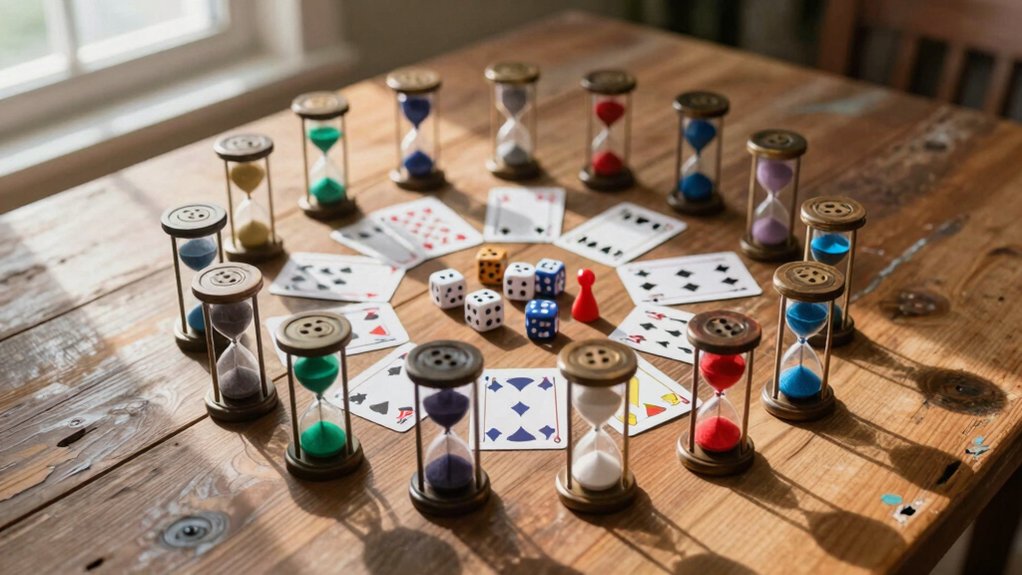
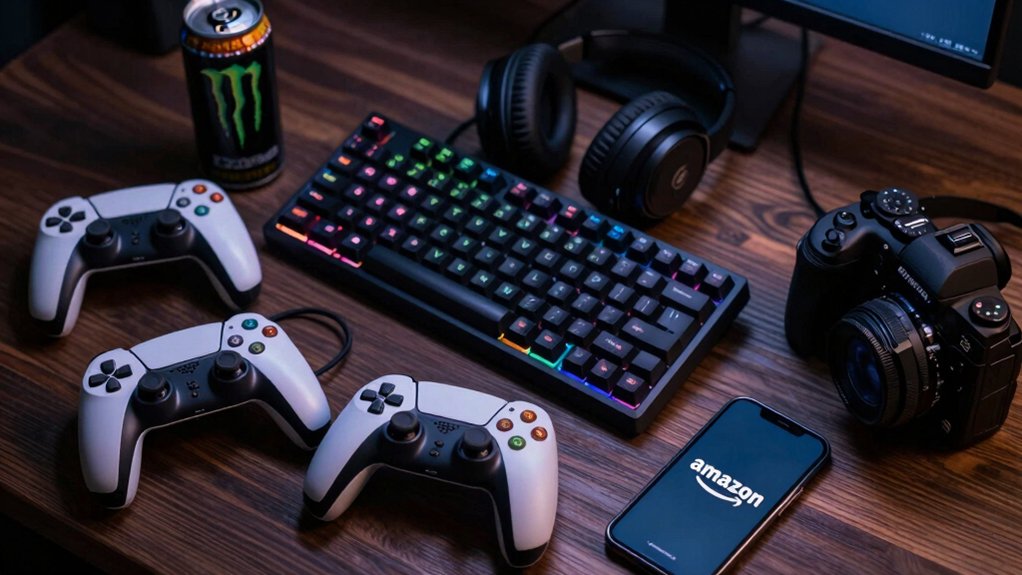
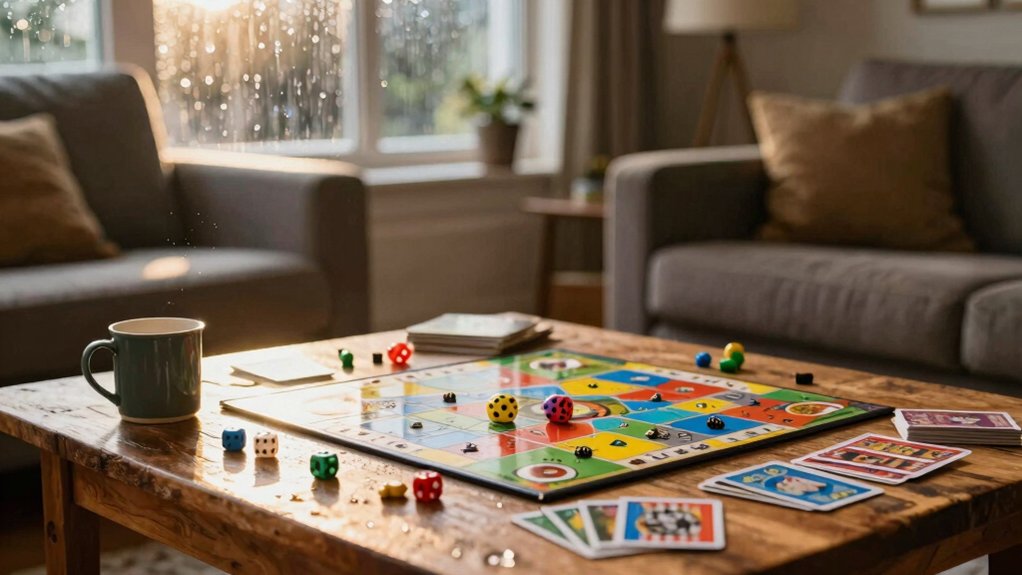
Leave a Reply